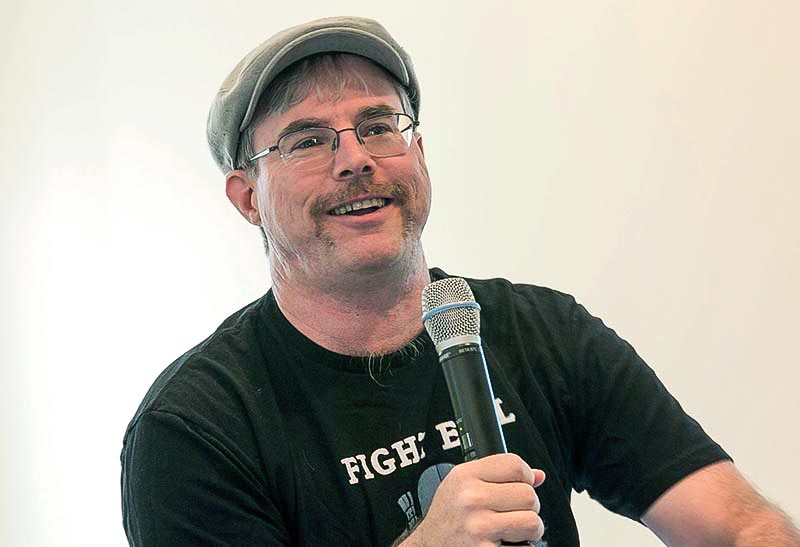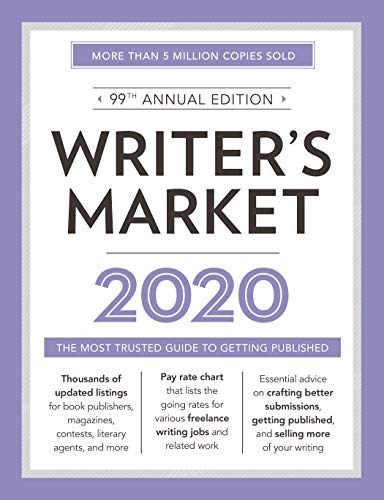Editor’s note: Fantasy author Jeff Wheeler, one of our startup’s founding authors, received an email from a writer just starting out in the book business who asked how to go about publishing a novel. He also asked other questions around copyright, finding an editor and more, so we thought other first-time authors would benefit from a bestselling author’s advice. Here is Jeff’s response.
Dear Noah,
You’re not the first person to write asking how to publish a book. I hope you’ve done some Internet searches already and read some websites about the process. If not, do that first. You’ll probably stumble across helpful articles like this and this.
You asked about how to copyright your work. Don’t worry about that at this point. Your work is protected by copyright law as soon as you write it. You don’t have to register it in order to protect it. I had a similar concern when I was starting out and thought I should mail the manuscripts to myself so that there would be evidence that I’d written it first. People usually don’t go around stealing another author’s work and trying to publish it themselves. It’s also less likely to happen if you don’t post your entire manuscript on-line.
Before you try to find a publisher, realize that most first novels need some work before they’re publish-ready. That’s because you’re still trying to figure out how to transmit ideas from your brain and into the brain of someone else. It’s not as easy as it looks. We use words to do this but how you interpret them may be completely different than how someone else does. Including your readers.

Tips on how to get published
Here are some thoughts on how to proceed.
Have a complete work in hand
First, you need to complete your book. This is a lot harder than it sounds, but you’ve made it this far already so that’s a huge win. Most people cannot write a complete novel. It takes too long, it’s too hard, and they come up with any number of excuses why they can’t do it. Do not try to publish or to contact an agent about a book you haven’t actually finished yet.
Solicit feedback
After writing the book, you need honest feedback from people who don’t have an interest in protecting your feelings. Your spouse, best friend, sibling or parents are usually where we start in an effort to get feedback, but let’s be honest, they’re not going to share any hard truths about your work’s shortcomings.
How do you get feedback then?
You can join a writers’ group. Some are online. Some may be in your area, depending on where you live. Start by doing a search for writers’ groups in your area at Meetup.com — there are hundreds across the nation. If you live in California, the California Writers Club has chapters up and down the Golden State. During the coronavirus outbreak, the clubs have gone virtual, with many meeting over Zoom. Perhaps there are similar organizations in your area.
The downside of asking other authors for their input about your story is that they’ll look at it from the point of view of a fellow author rather than as a reader. The best input comes from readers. Readers are everywhere. Ask around. It won’t be easy. No one said this was easy.

Incorporate readers’ feedback
After you’ve found some readers, listen to their feedback. Really listen to it. If they’re confused by what you wrote, don’t get offended or argue with them. Take the information to heart and try to rewrite to make things more clear. After working with many different kind of editors over the years, I’ve found they are spot on in pointing out flaws or confusing passages in my manuscript. If I say someone stood up, did I mention earlier that they were sitting down? Things like that. Inside my head, everything makes sense. But when someone outside my head reads it, sometimes things don’t add up.
This process often involves rewriting your book multiple times. Sometimes scenes need to be fixed. Sometimes huge parts of the story collapse and have to be rebuilt. Sometimes new material must be added to bridge things. It can be a discouraging and lonely process. Get used to that feeling because it doesn’t really go away.
When my writing started to get good, I found my readers kept asking for more. That’s usually a positive sign. If they read it as a favor to you personally and don’t ask about it or show interest, then it probably means the writing hasn’t engaged them.
Books are supposed to evoke emotions. If yours isn’t doing that, then that’s what you need to work on. I think the No. 1 ingredient to any successful book is tension. It doesn’t matter the genre or even if it’s nonfiction. A story must be compelling. Weed out the parts that aren’t and drive threads of tension throughout the story to make your reader want to know what’s going to happen next. If you don’t, readers get bored and stop reading.
Once you’re at the spot where your beta readers (these are the folks who you’ve trusted to read your stuff and give feedback) can’t improve it and they want to share it with their friends, then I think you’re ready to figure out how you’re going to get published.

Two publishing routes to consider
There are two main routes: traditional publishing and self-publishing. The first is a lot harder than the second and that’s because it comes with major benefits. Traditional publishing has been around for a long time. It works and it will continue to find most of the next major bestsellers. But they earn their money by publishing established authors who already have an audience. Most new authors they try out fail to pay off and so they drop them.
The advantage of traditional publishing is they know the business, they have relationships with places books are sold, they understand marketing and the business side of things. Each major publishing house has a big team and you’d be lucky to get chosen. Most publishers use agents as the gatekeepers. Some agents are already satisfied with the authors they have and don’t really need to take on more. Some agents are brand new and are still proving themselves. If you go this route, you will have to dazzle an agent and get them excited about your book or they just won’t bother. They have to love it.
The other route is self-publishing. You don’t have to convince anyone else to go this route except those who have control of your bank account. It will cost a lot of money to do it right, and you still have to figure out the business and marketing yourself. There are a lot of people self-publishing books these days and so it’s a crowded field and really hard to stand out. But it’s still a viable alternative to get your books out there and try to find your audience.
The importance of a good editor
I wish I’d known earlier on about the value of having a good developmental editor. You pay this person to help you get the book as professional as possible. This is useful both for traditional and self-publishing. A polished manuscript will be more likely to be noticed by an agent. And if you self-publish, readers will also notice the quality.
There are no credentialed programs for editing, so you’d have to be careful who you pick. My dev editor came from the Columbia Publishing Course in New York City. You may prefer someone who has graduated from a prestigious university with an English degree and honors and a client list of names you actually recognize. That usually means something. It’s not cheap to hire someone like this — the cost often runs into the low four figures — but I can’t stress enough how important it is to make sure your writing is at a professional level first before trying to find an agent or to self-publish.
If you have to choose between both options, my recommendation would be trying the traditional route first. If that process doesn’t work out, and you’re still passionate about seeing your book out there and willing to risk your money on it and possibly never recoup those costs, then you have Plan B.
The trad route starts with an agent

The process for traditional is pretty simple. First, you need to find an agent. Listings for agents are in a book called The Writer’s Market and it’s published every year because the information changes so often. Look for an agent in the genre you write in. Read their biographies and see what they are looking for. Plan on submitting to anywhere between 20 and 50 agents — not all at once — so keep your list broad and reach out to a small handful each week with a query letter and a pitch. Look online for examples. Do not send your manuscript to an agent unless you receive the go-ahead beforehand.
Be prepared for a lot of rejection. Remember, even Stephen King, J.K. Rowling and Margaret Atwood got turned away by literary agents dozens of times. But all it takes is one ‘‘yes’’ to move to the next step. If that doesn’t happen, decide when you’ve had enough. I submitted to more than 40 agents, had only a few ask to see any samples of my book, and one who requested the whole manuscript before turning it down. It’s brutal both waiting and experiencing rejection. But it’s part of the business.
If an agent does accept you, you’ll probably sign a contract with them. Try to find a rights attorney to help you understand what the contract means. This is important because if you sign a contract, you are stuck to the terms of the agreement. There are dishonest people in this business, so if something smells fishy, walk away. I’ve heard some horror stories from several authors I know. If the agent is legit and you do end up signing the contract, it’s their job to find a publisher for you. This also can take some time. An agent will try to negotiate the best deal for you and for them. But they know the business better than you do. They might ask for rewrites to make the book more professional or commercially appealing.
The self-publishing route
If you’ve tried the traditional route and it didn’t work, it doesn’t mean you’re a bad writer. Publishers assume the financial risks of publishing a book and want to be pretty sure it’ll be a wise investment. It’s easier to say no than to say yes. That leaves you with the other alternative, self-publishing. Thankfully, this process has gotten a lot easier in the last 10-plus years and many authors, myself included, have found success using this method.
Before self-publishing a novel, you’ll need to make sure it is thoroughly edited. While a developmental editor is awesome, you still may want to hire a copy editor and a proofreader. It might feel like you’re wasting money, but it’s not. Readers’ expectations about professionalism continues to grow and if the book is poorly edited, you’re likely to get negative reviews that will hurt your chance of finding an audience. I did not do this when I self-published and regret that choice.
You’ll also need to hire a book formatter who can prepare an e-book version as well as a print version, unless you want to do it yourself by investing in a formatting tool like Vellum. It’s also crucial that you hire a great cover designer, one who can create a front and back layout for print books and an e-book friendly cover as well as create one for an audiobook, which more and more readers are turning to these days. All of these expenses can add up to $5,000 to $10,000 per book. There is no guarantee that your book will earn back this amount, so don’t proceed if you can’t afford to lose the money. You can always keep practicing by writing more novels.
Final words of encouragement
Mastering anything takes about 10,000 hours of dedicated practice. In the publishing world, that equates to about a million words of practice. You’ll have to be at it for a long time. Once you finish writing a book, start writing another. Don’t wait to achieve success on the first book before starting on the second. My editor has repeatedly told me that the No. 1 best thing an author can do to sell more copies of a book is to write another one in the same series. Fans love to binge-read, so having multiple books releasing a few months apart is a great way to expand your readership. Traditional publishers haven’t been great at increasing the cadence of launches. Self-published authors can release multiple books a year because they control the schedule themselves. Fans don’t like waiting. The faster a book comes out, the more responsive your fans will be.
I hope this hasn’t been discouraging to you. You need to decide whether you’re willing to put the time, energy and resources into this creative endeavor. Most authors I’ve met write because it’s a compulsion. They write because they have to. Because the stories never turn off in their heads. Things inspire them all the time. Creation is a wonderful act. Just realize that it’s not easy or fast and that success doesn’t come by following an equation. Most success stories I’ve heard (and the one I’ve lived myself) involved a degree of luck, serendipity or divine intervention.
Everything I’ve told you is what I wished I’d known earlier on. Keep at it and let me know how it goes.
Good luck!
Note: For a longer exploration of Jeff’s author journey, check out his book “Your First Million Words.”







Thanks! This helped me a lot.